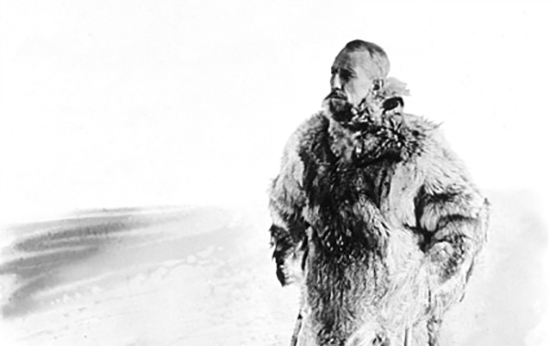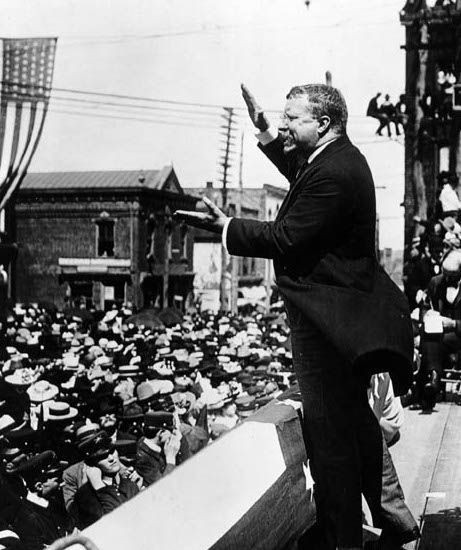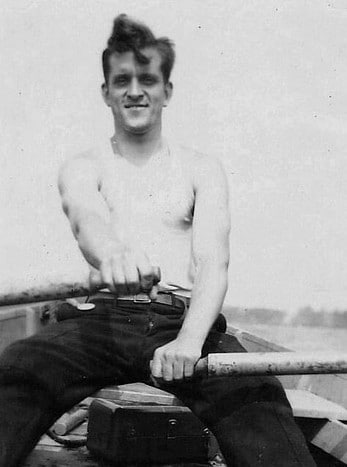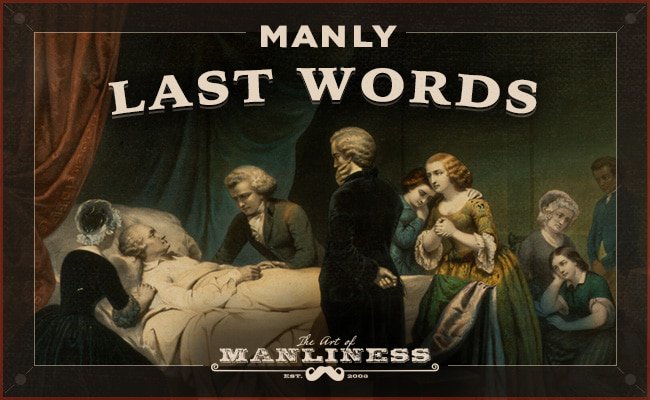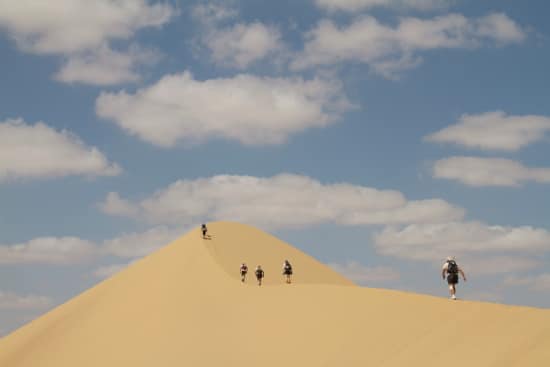
Editor’s Note: This is a guest post from Khaled Allen.
Two hundred and fifty kilometers across the Sahara Desert sounded perfect. He had just started running again and Ricky thought a race across the hottest desert on Earth would be good motivation for his training.
Ricky Paugh is one of the 4 runners whose stories are featured in the movie Desert Runners, which follows them as they tackle the 4 Deserts Grand Slam, an epic race series organized by RacingThePlanet. The grand slam is composed of four ultra-marathons, 155 miles each, across the world’s most brutal deserts — the Atacama in Chile, the Gobi in China, the Sahara in Egypt, and Antarctica. The four deserts respectively represent the driest, windiest, hottest, and coldest places on Earth. Runners carry everything they need to survive on their backs. More than 100 countries have been represented at the 4 Deserts since it started in 2003.
My personal passion is understanding, practicing, and sharing the habits of exceptional people, so when I was offered the chance to interview one of the runners, I knew exactly what I wanted to find out: How does a regular person take on such an epic feat? What elements make it possible to endure the immense undertaking, from the grueling preparation to the superhuman feat itself?
Having run a couple marathons, I knew that the most difficult part of attempting anything exceptional is mental, not practical. Education and training programs are easy to find and apply. It isn’t the skill set that sets exceptional men apart; it’s the behaviors, beliefs, and perspectives that allow them to apply those skills in a way that leads to something great. It is the willingness to see things through, to be persistent and committed.
Races are great testing grounds of this principle. The skills required to run a race are fairly minimal: simply run (or even walk) without stopping. Everyone knows how to locomote. What differentiates races is how much mental fortitude they require, how tough you have to be, and where that toughness comes from.
The Three Obstacles to Being Epic
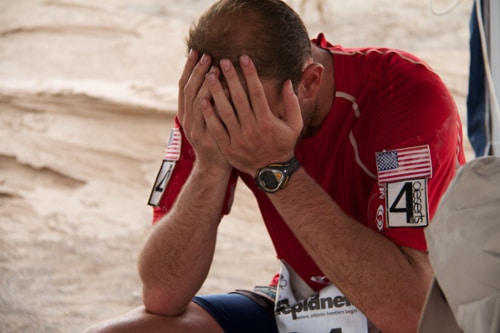
For any large-scale effort, there are always unique challenges that must be tackled on a case-by-case basis, but there are some things that come up that are common to all epic adventures. I’ve run into them myself a number of times.
I believed these obstacles would be magnified for something like the 4 Deserts Grand Slam, and anyone who had been able to complete the race series would be intimately familiar with the obstacles to greatness and the techniques to overcome them in a variety of situations.
As I watched Desert Runners, I was struck by how each of the four racers were both humble and supremely confident. They didn’t minimize the task, but simply believed they could rise to conquer it.
Throughout the races, the most difficult obstacles had nothing to do with distance or terrain. It was the threats to confidence that threatened to derail the runners. They had a particular mindset that allowed them to avoid or triumph over the mental traps most of us fall into.
The first obstacle is believing that you are capable of accomplishing something so far beyond everyday life. How do you go from nine-to-five folding-the-laundry life to the belief that you can stand on top of a mountain or be washed over in the adulation of a crowd of adoring fans? The biggest obstacle is the mental shift from, “I’m just an average guy,” to, “I’m destined for greatness.”
The second obstacle is the social one. Doing something grand by necessity puts you on the outskirts of society: if it were commonplace it wouldn’t be epic. The result is a fear of being ostracized. Since humans are social creatures, this is a justifiable concern. The life and people that surround you now, for the most part, exist to support the person you are. They may not support the person you are seeking to become. Nobody wants to become a legend only to lose all their friends in the process.
The third major obstacle arises when you’re neck deep in the hard work itself. You can’t see the horizon and the original goal you set out for. Scary things happen. The risks become very real. You start questioning why you got started in the first place. This nagging uncertainty comes up no matter what you’re doing, and it is the silent killer of countless epic deeds, from Greek myths to writing novels. Finding the tools to overcome it is essential to avoiding a lifetime of false starts.
From Humble Origins
Ricky’s background isn’t particularly unique. He was a rising corporate star working for a company that struck gold while he was in his twenties. Having played professional baseball after college, he decided it was time to dive into his professional life, and he let his health slide to the wayside.
It was after some years of this, on his first day in a new position in London, that he ran out of breath jogging up the stairs of a subway station in 2008.
His thirties was too soon to be out of shape, he decided, and so, like many men in his position, he took up running.
He applied his usual determination and improved quickly. As he regained his fitness, he realized that he needed a goal, and when he heard about the Sahara race, he signed up, an eerily mundane process comparable to buying tickets for a show.
Destined for Greatness: Overcoming Obstacle #1

I asked him why he decided on an ultra-marathon across a desert. Why not just run a regular marathon?
His explanation: “A marathon wasn’t epic enough. It wasn’t unique enough.” And that’s true. Millions of people run marathons every year. The 4 Deserts was something out of the ordinary, and that struck a chord of envy in Ricky.
While most people might have simply been impressed and gone on with their lives, Ricky wondered, “Why not me?”
He thought, “If it is done by a human being, then it can be done, and I can do it.”
That mentality, more than anything else, is what opens to door to the possibility of doing things beyond the ordinary pale.
But just because the door opens doesn’t mean we know how to take the first step, and having at least a rough outline of the path ahead is crucial. What Ricky did to get a sense for the journey he was about to embark on was talking to people who had done what he wanted to do.
He found other ultra-runners, and even some who had done the 4 Deserts. He asked them what to expect and how to prepare, and he found them amazingly welcoming. They wanted more people to succeed at what they had done, and they offered their support and encouragement along the way.
Ricky also read books, watched movies, and followed blogs. He immersed himself in the world of extreme endurance ultra-running to become as familiar with the topic as possible — not just the knowledge but the lifestyle and the mindset.
Lone Ranger Syndrome: Overcoming Obstacle #2
Anyone who has ever thought about doing something out of the ordinary has worried what their friends might think. How do you keep up your social life when you are getting up at 5am every morning to train for a marathon? Humans are social animals, and the thought of being ostracized is often sufficient to deter us from doing anything that might make us stick out.
Preparing for an ultra-marathon had the potential to be especially alienating. Besides the high mileage, Ricky also limited his alcohol consumption and turned in early each night because he had a long run in the morning.
But, far from alienating him, going off the deep end actually had the opposite effect. Committing so strongly to doing something unique made him powerfully interesting. “What it actually does is it makes you a magnet for people, friends, and success, both professional and social,” he explained.
People want to be inspired, to believe that anyone is capable of great things, so when you step out of your comfort zone, others naturally gravitate towards you. Seeing you make it happen helps others believe that they can overcome the obstacles in their own lives.
Ricky said he was lucky to have good friends who understood and supported his aspirations, but he also pointed out that committing to the race led him to meet like-minded people: “I found myself with a group of friends who like to push themselves — both physically and in the corporate world. They have similar mindsets.”
Those who didn’t want to support him, usually because of their own insecurities, were those he didn’t want in his life. This can be a hard truth to accept, but for anyone determined to grow past a limited worldview, they will find that some of their current friends don’t want them to succeed. Maintaining old relationships can be difficult, but it can help to remember that you will attract new ones to fill the space with more empowering support.
In the Trenches: Overcoming Obstacle #3
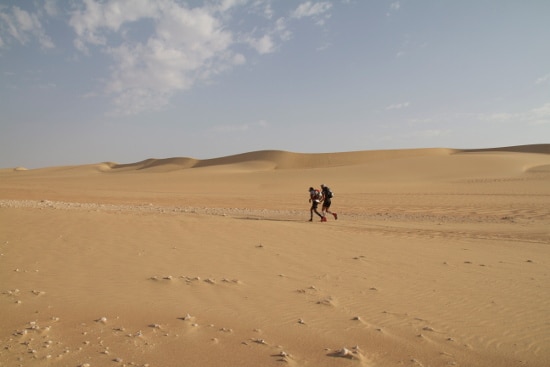
When you’re in the middle of things, “you have to surround yourself with positive people. You just won’t be as strong as you would be if you surround yourself with positive partners.”
This approach is what made the difference for Ricky. Running for miles and miles across barren, sun-scorched landscapes with no relief in sight, it’s very easy to let the voices in your head get too loud.
Ricky made an effort not to get too focused on his own problems. He told a story about the first time he ran the Sahara in 2010. His luggage had been lost and he was running in shoes that were two sizes too small for him. With skin peeling off his feet, he was feeling really sorry for himself on the morning of the 100K day.
But when he looked out of his tent, he saw that everybody was limping and he realized that all of them were in the same boat.
Instead of focusing on his own problems, he decided to focus on supporting others.
He did this by trying to be a source of encouragement, shoring others up against their own struggles, pushing them at times, or just standing by.
One thing that stood out about Ricky’s mindset was a real sense of perspective. When he used to complain about a run, his wife Jemma would ask: “Is anyone shooting at you? Then you’re fine.” He took that with him into the desert.
When one of the racers died on the Gobi race, the importance of perspective was driven home. Seeing the runner’s fiance and family arrive to claim the body, Ricky reminded himself why he was there: to have fun, to enjoy himself, to push himself. But there were more important things in life than finishing the race at all costs. It wasn’t worth pushing so hard that he might put his own family in that unenviable position.
While this kind of thinking might seem like fertile ground for doubts to grow, it actually allows you to preserve your resources so that you actually accomplish your goal, rather than injuring or destroying yourself.
In the movie, Ricky dropped out of the 2010 Sahara race because of an inability to keep water down caused by an electrolyte imbalance. On a 250K run through the hottest desert on Earth, that is a potentially lethal health concern. He ran the race another day, pointing out, “We’re not fighting a war or saving lives.”
Keeping your purpose in mind is essential. It prevents you from getting carried away or distracted. If you are running your first marathon and your goal is simply to finish, don’t suddenly get caught up in the excitement and try to post a great time. Save that for later. And even when you are trying to set a world record, maintain the perspective to understand how much of a priority that is in the grand scheme of your life and your relationships.
The Value of Relationships
The common thread I detected throughout Ricky’s experience was that of relationships. It was his belief in connecting with other humans that convinced him he too could do great things. By reaching out to others who had already done it, he shored up his own resolve. By running with others, surrounding himself with positive, supportive people, and directing his energy towards caring about others instead of his own pain, he kept himself moving. And it was the connections he had to his fiance and his family that reminded him of the real importance of this crazy race.
Within and among these relationships, Ricky’s aspirations served as a catalyst, bringing together the diverse energies of his many communities. In a way, he became an expression of that collected energy, rather than simply a consumer or utilizer of it.
Summary
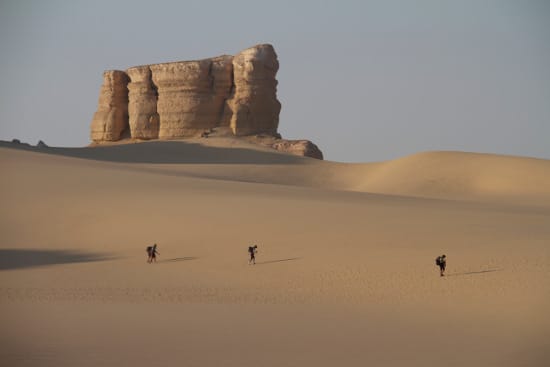
Obstacle #1: Not believing you are capable or worthy. Refusing to accept the possibility of accomplishing your goal.
This is both a safety mechanism and an excuse. The belief that you aren’t worthy of greatness keeps you from risking it all, but it also provides a great excuse to never try: you’re simply not meant for it.
Solution: Remember, if someone else has done it, it’s possible that you can do it. Go out and meet those people to discover that they are ordinary humans.
Obstacle #2: Fear of alienation.
Solution: By stepping above the ordinary, you will attract the right relationships and become an inspiration to others who want more out of life themselves. Be willing to let go of people who will try to hold you back because they don’t want to lose their excuses for staying where they are.
Obstacle #3: Second-guessing your purpose and your threshold.
Solution: Maintain perspective. As Ricky pointed out, it’s important to understand the difference between hurt and injured.
Never forget why you’re out there in the first place. Losing sight of your “why” is a recipe for disaster, either by getting sidetracked or losing focus and potentially overextending yourself.
Focus on keeping others going. That energy will give you reason to keep moving, and it will also attract the support of friends on the same path.
___________________________
Khaled Allen writes about the psychology and the realities of living up to your potential with integrity at Warrior Spirit. He is also a MovNat trainer and a self-defense coach living in Boulder, CO.
All photos credited to the Desert Runners Movie.




